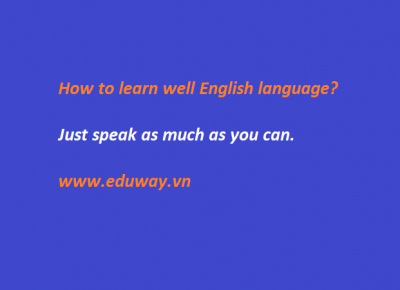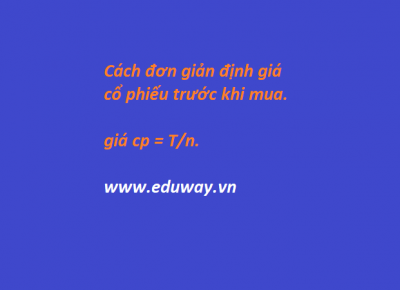The true practical value of English Language in Viet Nam
Many people have been learning English Language. Some spend a huge amount of money for many years. For instance, Vietnamese people are willing to spend more than $10000 USD to learn English Language in 5 to 10 years. These learners or their parents believe that knowing English language will give them an edge for the future.
Is this belief sound?
In my experience, knowing English language alone does not guarantee any important advantages unless the person is really really good at English Language that they can use this Language to make a living such as offering services, creating quality and valuable information goods. Those are excellent teachers, journalists, writers or interpreters.
The rest do not use much English Language for their living. Few use them in workplace for small talk, or as a communicative tool in business world. However, the know-how of using English Language in workplace does not offer great advantage. I know quite many people working for International companies located in Viet Nam and these companies need employees that possess critical skills and knowledge to do the work, basic English knowledge, on the other hand, is a positive advantage but it is not essential in hiring process.
Thus, for practical purpose, I divide English learners into two categories. The first class of people know foundational English language that helps them in casual communication, whether they travel or use in workplace.
The second class of people know English language well enough to explore the content conveyed in this language. It means those who can read and listen to understand professional know-how in documents, books or talks expressed in English. And this is the true practical value for most of English language learners. For this reason, English language should be considered as a tool to connect learners with global knowledge. And this must be the most important purpose of learning English language.
Furthermore, studies have proven that we can have good thinking skills without knowing the language. In the same token, knowing English language does not help learner develop thinking skills unless teachers and schools provide more valuable inputs – knowledge and experiences through English Language.
In short, English language learners should strive for the content embedded in English Language. Similarly, teachers and schools must strategically focus on the content, not the language because most of us are not professional users of English language. If the learners want to be a professional of English language, go to specialize schools, colleges and universities. Because it is a profession, it is costly in terms of time, money and effort and it deserves a lifetime devotion to master the art.
In short, if you do not intend to make a living by using English language or become a Master of English Language Art, focus on the content. This content can be about sciences, technologies, businesses, or any professional know-how that you want to learn. Basic communication skill in English is nice to have but not essential since this skill does not give you competitive advantages in the marketplace.









